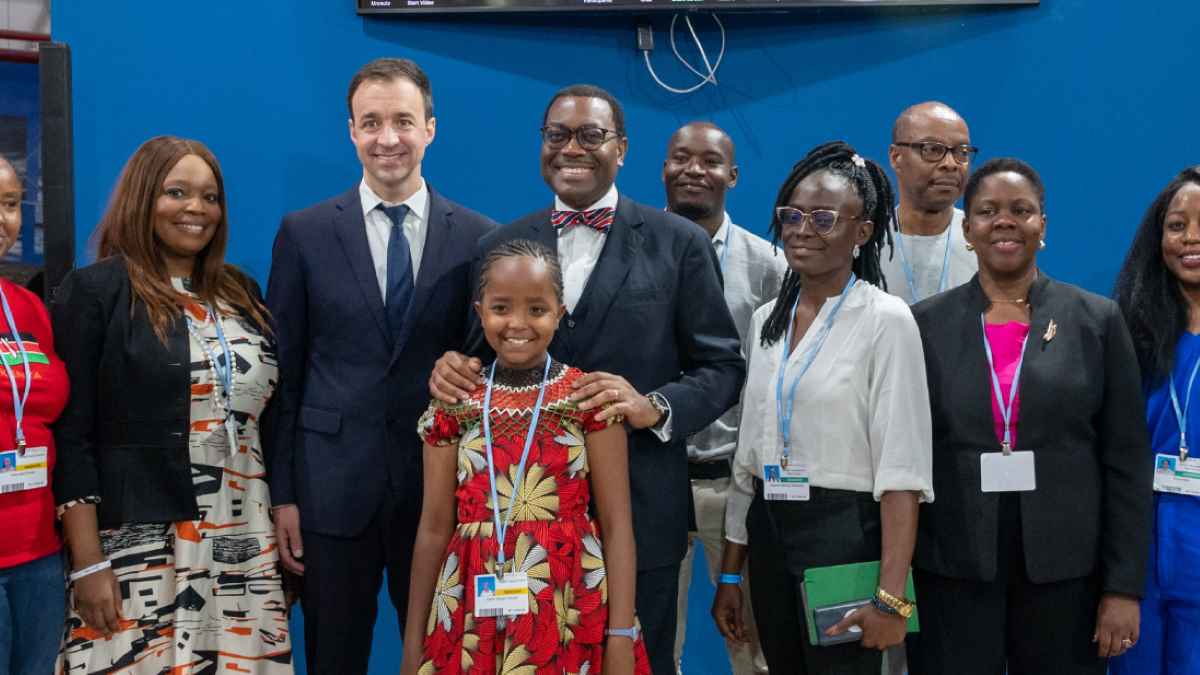In addition to the grant, each winner benefits from a 12-month accelerator program to help them grow their businesses, deepen their impact and create decent jobs
SHARM EL-SHEIKH, Egypt, November 11, 2022/APO Group/ —
Twenty African youth-led enterprises have won grant funding of up to $100,000 each in this year’s African Youth Adaptation Solutions Challenge (YouthADAPT) competition. In addition to the grant, each winner benefits from a 12-month accelerator program to help them grow their businesses, deepen their impact and create decent jobs.
The annual competition and awards program for youth-led enterprises—which is 50% women-led—is jointly organized by the Global Center on Adaptation, the African Development Bank and Climate Investment Funds (CIF). The program is part of the Africa Adaptation Acceleration Program YouthADAPT flagship pillar (http://bit.ly/3DZH2Tl).
The program boosts sustainable job creation by supporting entrepreneurship and youth-led innovations in climate change adaptation and resilience across Africa. The competition invites young entrepreneurs and micro, small, and medium-sized enterprises in Africa to submit innovative solutions and business ideas that can drive climate change adaptation and resilience.
Speaking at the awards ceremony, African Development Bank Group President Dr. Akinwumi Adesina, said: “Africa’s needs cannot be ignored. The youth must be at the center of everything we are doing about climate change. No young person is too young to engage in climate dialogue. Our young people must be part of the solution. They are creative, dynamic, and engaging. They are futuristic and must be part of the solution for climate adaptation in Africa.
“We want the youth to speak for Africa and develop solutions for the continent. For this initiative last year, we supported 10 youth-owned and youth-led businesses in Africa with $1 million. This year, we are supporting 20 businesses with $2 million. So, we can expect that next year, we will double efforts to $4 million dollars. That’s the way it’s going to go for Africa.”
Adesina observed that 80% of the winners’ businesses were in agriculture. He said: “Agriculture is the future of Africa. As you know, that has been my gospel for many decades. The lowest bar is for Africa to feed itself. The high bar is for Africa to feed the world. Agriculture is a business. I encourage our young people to do three things: Create, Adapt and Prosper. CAP for short.”
We want the youth to speak for Africa and develop solutions for the continent
Norway’s Minister of International Development Anne Beathe Tvinnereim commended the enthusiasm that the competition generated among the youth. She said it is important to tailor climate solutions that could be scaled up for the various communities.
“That is where the youth of Africa come in – you see the problem; you see the solutions and you have the energy and the resources to deliver and we want to help you with that,” She said. She commended the African Development Bank and the Global Adaptation Center for creating the initiative.
Professor Patrick Verkooijen, CEO of the Global Center on Adaptation spoke about the impact of the award on one of last year’s winners, Juveline Ngum Ngwa from Bamenda in Cameroon who was able to scale up her business, Bleglee Waste Management. As a result of last year’s grant, she was able to open a second waste sorting factory and has developed further software for her drones which identify garbage which is blocking drainage systems.
He remarked: “Adaptation is good business. But it needs to be at scale. And that is exactly what the Africa Adaptation Acceleration Program – the AAAP – does. The AAAP is mobilizing $25 billion over five years to scale up and accelerate adaptation climate adaptation actions across Africa. And one of its four pillars is the YouthADAPT flagship program.”
The winning enterprises of the Youth Adaptation Solutions Challenge 2022 come from all parts of the continent. Half are female led. They are scaling innovations in critical social and economic sectors affected by climate change. These include agriculture, waste management, water resources and sanitation, renewable energy and energy efficiency.
The 2022 winners of the African Youth Adaptation Solutions Challenge are:
- Flushh, Namibia
- Green Impact Technologies, Malawi
- AgriTech Analytics, Kenya
- Baramoda, Egypt
- Cassavita, Cameroon
- Ecobarter, Nigeria
- Farmer Lifeline Technologies, Kenya
- Grocircular Agro Services, Nigeria
- IRIBA Water Group Ltd, Rwanda
- Mpatsa Engineering Company Limited (formerly Sustainable Water Irrigation and Farming Technologies), Malawi
- Viva Organica, Botswana
- Voltx for Engineering & Industries, Egypt
- West African Feeds, Ghana
- Kisumeo Organics Limited, Kenya
- Agroexpert farming, Senegal
- Eurl Algerienne Des Industries Technologiques, Algeria
- Lono, Côte d’Ivoire
- Pazelgreen Technologies, Nigeria
- Akatale On Cloud, Uganda
- Multi-Tech Sustainable Solutions (MTTS), Cameroon
Program organizers received 3,000 applications for this year’s competition. The top 50 were shortlisted to pitch their innovations before a jury.
Distributed by APO Group on behalf of African Development Bank Group (AfDB).
